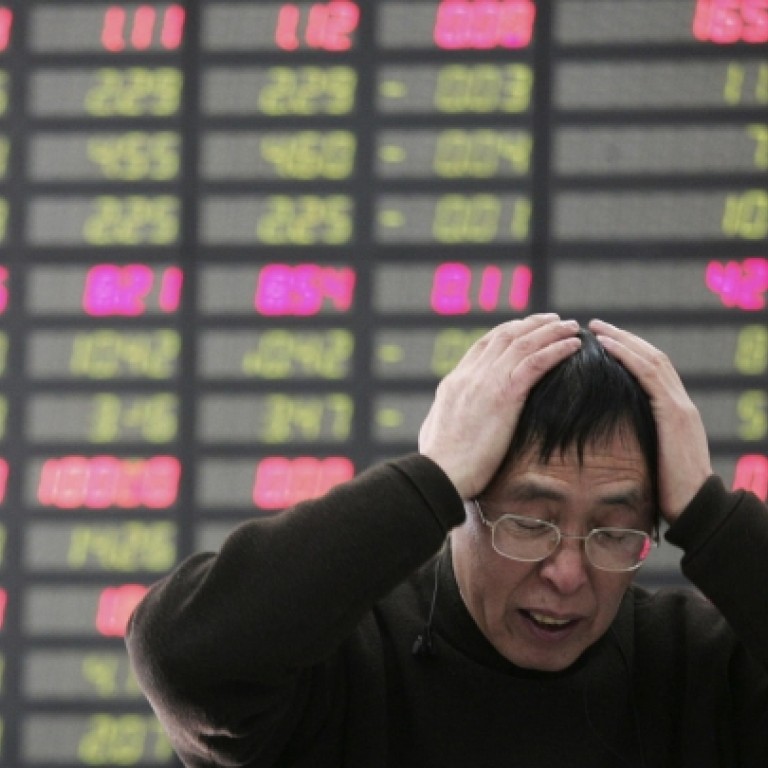
Market jitters greet move to resume share offerings
Fears the relaunch of listings will spark outflow of funds spur mainland investors to cash out, leaving Shanghai index at its lowest in six months
Beijing's decision to resume initial public offerings next month has raised fresh fears of a fund outflow, knocking the mainland share market to its lowest close in six months yesterday.
As the China Securities Regulatory Commission has failed to live up to its promise of overhauling the listing mechanism during the eight-month suspension, hopes for a healthier equity market have started to unravel, with disappointed investors now bracing for a prolonged bear run.
CSRC vice-chairman Yao Gang told a work conference on Tuesday the listing market would be reopened next month. The Shanghai Composite Index fell 0.62 per cent yesterday on the news, leaving it down 5.54 per cent so far this year.
"I am very disappointed," said Xia Yunfeng, a retail investor who has lost more than 50 per cent of his equity investments. "All the talk about protecting investors proved empty."
When the CSRC halted listing approvals in October last year, it said it would reform the offering system and weed out the malpractices rampant among issuers and underwriters.
A flurry of share offerings drained liquidity out of the market in the past three years, resulting in the Shanghai market being the world's worst performer.
The CSRC attempted to phase out the review and approval procedure, replacing it with a US-style system based on full disclosure of information - a move to ensure only quality firms can float on the market.
Admitting that the CSRC would be criticised for failing to reform the listing mechanism, Yao told the conference that existing laws and regulations prevented the regulator from aggressively overhauling the system.
According to people with knowledge of the regulator's thinking, it suspended new listings in order to stem fresh equity outflow and bolster the market.
Mainland retail investors used to bank on new offerings, treating them as safe bets as the regulator would force companies to sell shares at artificially low prices to facilitate fundraising.
The regulator gave companies and underwriters freedom to set prices in 2009 after a 10-month listing drought but retail investors still flocked to new offerings, hoping to make a killing on their debut.
"The last IPO reform only created opportunities for vested interest groups to exploit retail investors," said a banker on condition of anonymity. "Many IPOs were aimed at raising funds and splashing them out rather than making use of the proceeds to develop the businesses."
He said the approval procedure was a hotbed for corruption and fraud, with retail investors paying the price. A large number of newer listed firms posted sharp profit drops or even losses a year after listing.
Former CSRC chairman Guo Shuqing attempted to fine-tune the listing system, proposing the regulator relinquish its role in reviewing applicants and let market forces decide their worth.
According to his proposal, applicants would be required to publish all information related to their fundamentals when applying for listing, allowing the public to monitor and scrutinise their earnings details and profit outlook. Retail investors saw a ray of hope amid expectations that a new round of reforms would benefit them in the long run.
However, Guo's plan failed to materialise and he became the governor of Shandong province this year.

